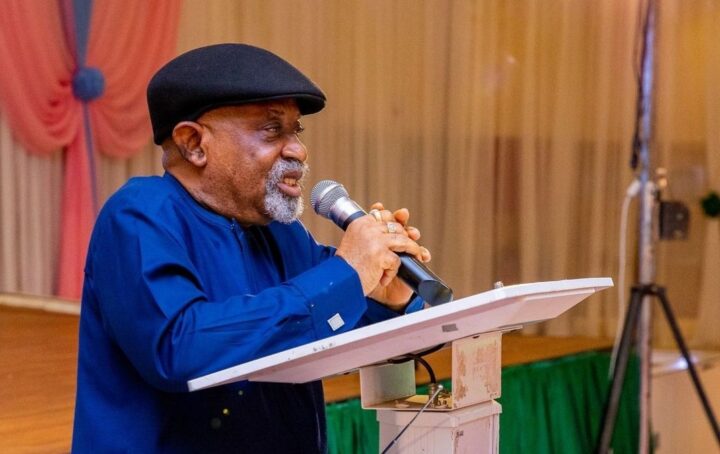Chris Ngige, minister of labour and employment, says the federal government will soon resolve issues on the ongoing strike by the Academic Staff Union of Universities (ASUU).
ASUU had, on February 14, declared a one-month warning strike to protest the non-implementation of its demands by the federal government.
But on March 14, the union extended the action by eight weeks, citing the government’s failure to fully address its demands.
On May 6, Ngige had promised that the federal government will resume negotiations with ASUU with the aim of ending the strike.
Advertisement
However, three days after his promise, the union extended the strike by another 12 weeks.
On Wednesday, while addressing journalists after the federal executive council (FEC) meeting presided over by President Muhammadu Buhari, Ngige said the government will soon resolve issues causing the strike.
He also said issues concerning the payment platforms will be addressed in the next meeting fixed for Thursday.
Advertisement
“It will be resolved very soon. As the issue is bordered on money, remunerations, welfare, we did another conciliation meeting inviting the ministry of finance, budget office of the federation, National Salaries, Incomes and Wages Commission and again, with their employers on the 1st of March,” he said.
“After that, it became clear that two cardinal things were still keen — the issue of renegotiation of their welfare package as in the 2009 agreement; that agreement says you can review every five years, so, that issue stuck out like a sore thumb.
“Then another issue arose in that agreement — the payment platform of university transparency, accountability solution, which they say they’ve invented. They said they don’t want to be on IPPIS; that IPPIS was amputating their salaries and taking off certain allowances, and so, that it is not capturing their peculiarities.
“So, we now have to ask them to go back to these places, form committees with them. Education took them on the issue of 2009 agreement, which is renegotiation of their conditions of service, emolument, their remuneration allowances. Therefore, salaries, income and wages, and ministry of finance that produce the money are involved. So, they went back.
Advertisement
“That’s where they are — what we call tripartite plus meeting — based on the presidential directive that the chief of staff, myself, finance, education, find a solution.
“That meeting held in the banquet hall. We gave an instruction again for them to come back with terms. So, as I speak to you, as the arbitrator or conciliator-in-chief, I have not gotten back any of the reports from education, from salaries, incomes and wages, nor from ASUU because they’re supposed to report to me.
“But on the government side, we’re calling up a meeting tomorrow so that everybody on the government side can report if there’s a problem, so we know how to address it.”
The adoption of the payment platform has caused some friction between ASUU and the National Information and Technology Development Agency (NITDA) over the integrity test conducted on the university transparency accountability solution (UTAS).
Advertisement
In March, Kashifu Inuwa, director-general of NITDA, said UTAS failed three integrity tests.
According to him, the tests were meant to qualify UTAS — which was brought forward by ASUU — as an alternative payment platform to the government’s integrated payroll and personnel information system (IPPIS).
Advertisement
Meanwhile, Ngige had earlier said the insistence of the academic union on the immediate adoption of UTAS is delaying negotiations.
Advertisement
Add a comment







